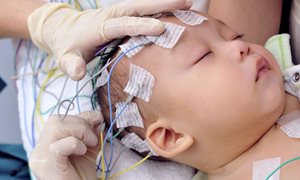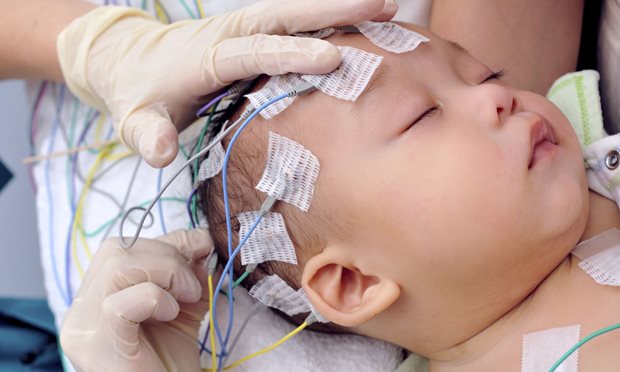

About
We are one of three science departments; a department with the core tasks of research and education. We explore the development and function of the nervous system in health and disease, with a special focus on neurodevelopmental, stress-related and sensory disorders.
It is our goal to have a significant impact on health, prevention, and innovation of care. We aim to achieve this through research increasing our understanding of the development, function, and plasticity of the brain as well as through teaching the next generation of professionals on these topics. With our multidisciplinary team, we focus on neurodevelopmental and stress-related processes in brain health and disease, integrating research from molecule to man and population.
Head of department

prof. dr. Barbara Franke
Contact
-
Secretariat CNS
+31 (0) 24 361 42 44
-
Mariëlle Langereis
-
Click here for an overview of the Operations Staff.
read more
Operations
Managing Director: Arthur Willemsen
Manager Business Operations: Nicolien Beld
Assistant Business Operations : Nino Calò
Management Assistant: Nadine Brouwer
Management Assistant: Ellen Evers
Management Assistant: Erna Sommer-Verploegen
Phone number: +31 (0)24 361 42 44 -
Trigon, route 200, kamer 02.275
024 (36) 14244
Our researchers Cognitive Neuroscience
A list of researchers connected to this department.
read moreGetting there
Visiting address
Donders Institute for Brain, Cognition and Behaviour
Kapittelweg 29
6525 EN Nijmegen
Directions



Internships
Human research
internships
-
Focus: Estimating the electric activity of the heart and the brain from recorded signals at the body surface, and computing the currents inside the brain from electric or magnetic stimulation outside the head.
Contact: Dr. Thom Oostendorp
Email: T.Oostendorp@donders.ru.nl -
Focus: Research using human brain imaging, psychophysiology, and psychopharmacology on the neural basis of cognitive and affective processes, with the ultimate goal to advance treatment of stress-related psychopathology.
Contact: Dr. Erno Hermans
E-mail: erno.hermans@donders.ru.nl
>More information -
Focus: Environmental factors and mechanisms that shape early and long-term human development, using psychological and biological perspectives. Interdisciplinary methods and areas of interest that include stress, caregiving, health, intestinal microbiota, behavior, breast milk, and interventions. (6-month internship)
Contact: Prof. Dr. Carolina de Weerth
E-mail: Carolina.deWeerth@radboudumc.nl
> More information
-
Focus: In the Lifespan Cognitive Dynamics lab we are interested how, and why, cognitive abilities change across the lifespan. To study these questions, we use a range of multivariate methods and Big Data approaches to examine how cognitive abilities change, fluctuate, affect each other, how brain structure and function supports changes in cognitive abilities, and how cognitive functioning interfaces with lifestyle factors such as physical and mental health, social and intellectual engagement and environmental factors in childhood and old age.
Contact: Prof. Rogier Kievit
E-mail: Rogier.Kievit@radboudumc.nl
> More information -
Focus: Human cognitive neuroscience studying the brain basis of memory, emotion, and their interactions. An interdisciplinary approach is applied integrating cognitive neuroimaging, genetics, pharmacology and diverse clinical disciplines.
Contact: Nils Kohn
Email: nils.kohn@donders.ru.nl
>More information -
Focus: Cognitive, neural and genetic mechanisms involved in neurodevelopmental disorders (ADHD, autism, Conduct Disorder/Psychopathy) over the lifespan; including identifying new molecular targets for treatment, and developing and testing effective non-pharma (diet and mindfulness) and biological/pharma interventions.
Contact: Prof. Dr. Jan Buitelaar
Email: Jan.Buitelaar@radboudumc.nl
>More information -
Focus: Our research group studies Sensory Processing Sensitivity, a personality trait also referred to as Highly Sensitive Person (HSP), aiming to uncover its fundamental mechanisms and its connections to mental health outcomes, including stress-related and neurodevelopmental conditions such as ADHD and autism. We also explore how these topics intersect with research on mindfulness and mindfulnessbased interventions. Methods include: epidemiological samples, RCT designs, qualitative research, (neuro)cognitive research, twin design, neuroimaging.
Contact: Prof. Corina Greven
E-mail: corina.greven@donders.ru.nl
>More information -
Focus: To develop statistical and machine learning techniques for making predictions relevant to brain disorders and to understand their underlying neurobiology on the basis of neuroimaging data.
Contact: Dr. Andre Marquand
E-mail: a.marquand@donders.ru.nl
>More information -
Focus: Understanding the link between genetic liability for different neurodevelopmental and psychiatric disorders, the brain structure, and long-term functional outcomes using neuroimaging, genome-wide statistics, longitudinal data and multivariate statistics.
Contact: Emma Sprooten
E-mail e.sprooten@donders.ru.nl
-
Focus: Memory enhancement by sleep and other interventions, such as mnemonic strategies and memory training. Neural basis of cognitive processes during sleep, including dreaming. Healthy subjects and patients with affective disorders.
Contact: Dr. Martin Dresler
E-Mail: martin.dresler@donders.ru.nl
> More information -
Group: Molecular Psychiatry
Focus: unravelling the biology of multifactorial neurodevelopmental and stress-related psychiatric conditions. My lab employs novel approaches to gene finding, such as combining analyses of common and rare genetic variation. Downstream of risk factor identification, we aim to understand the pathways from gene to behavior/disorder. For this, we use complementary approaches, including epigenetics and other molecular omics, bioinformatics, induced pluripotent stem cell-based neurons, small animal models, and neuroimaging genetics.
Contact: Prof Barbara Franke
Email : barbara.franke@radboudumc.nl
More information; https://www.ru.nl/personen/franke-b
-
Focus: Investigate the primate brain from neuron to behaviour using advanced psychophysics, neuroimaging and (single-unit) electrophysiology. The focus is on visual perception, visuomotor behaviour and cognitive control in health and disease. Modeling links the levels of research.
Contact: Dr. Jeroen Goossens
E-mail: j.goossens@donders.ru.nl
>More information
-
Do gut bacteria interfere with depression?Effectiveness antidepressants may be improved11 October 2023
-
Adversities permanently change our brainsAn aberrant reaction to adversities may increase the risk of psychiatric disorders22 August 2023
-
New maps reveal the individual brain changes linked to different mental illnesses15 August 2023
